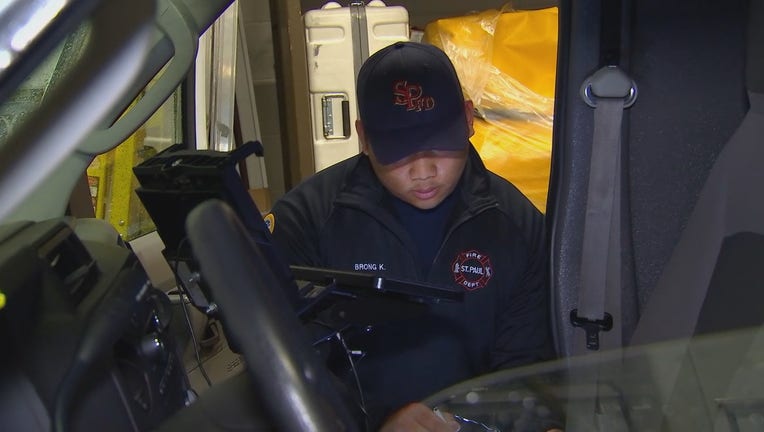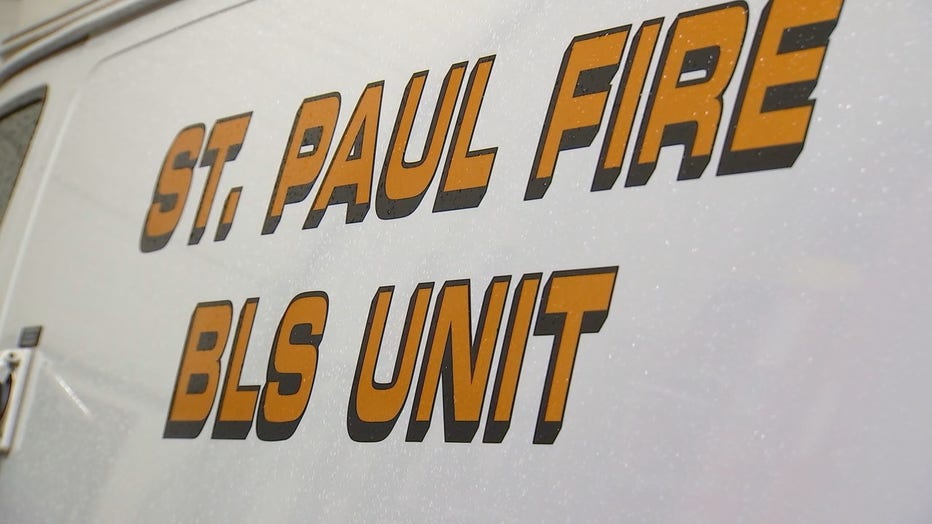New St. Paul EMS unit will take minor calls to help free up other emergency personnel

The Basic Life Support Responders team in St. Paul aims to help minor injuries. (FOX 9 Minneapolis-St. Paul)
ST. PAUL, Minn. (FOX 9) - When a medical emergency happens, there’s a new group of first responders taking the call in St. Paul.
The very first class of the Basic Life Support Responders just graduated last week and they’ve already been busy. The group of 12 works in teams of two and they have hit the ground running answering all kinds of calls.

New St. Paul EMS unit will help residents experiencing minor emergencies
The idea is that this unit can handle the growing number of minor injuries and calls to help free up the rest of the department for major emergencies.
Brong Khang is one of 12 new EMTs on the unit, all of whom graduated Friday and hit the ground Monday.
“I think a lot of us love St. Paul, we love serving the city of St. Paul, a majority of us are from St. Paul and have background knowledge of St. Paul and overall it’s a great department to work for,” Khang said.
It’s a program that’s more important than ever as the number of EMS calls continue to climb. In fact, the St. Paul Fire Department says calls for service have gone up 34 percent since 2009. EMS calls account for 86 percent of that growth.
“We know people are getting older, the population growth in St. Paul is being realized, so we want to be able to match that need for people who want to call us and need to call us,” said Matt Simpson, the Assistant Fire Chief in St. Paul.

The BLS unit, as they're called, responds to slips, trips and falls to free up other personnel for major incidents. (FOX 9 Minneapolis-St. Paul)
The idea is to put the three Basic Life Support units on more basic calls like slips, trips, falls, people with minor injuries or people who simply ran out of medication.
This, the department hopes, would free up medics and firefighters to focus on the more serious emergencies.
“We want to take care of the people, we just want to match the correct resource with the need,” Simpson said.
In the end, it’s all about making sure residents get the help they need while getting fire and life-threatening calls the quick answers they need.
“If a fire comes in, they’re going to get those rapid responses,” Simpson said. “Not that we didn’t have good response times now, but if we can make it one minute better, 30 seconds, it’s potentially going to make that outcome much more significant for the patient or resident or business that’s on fire.”

